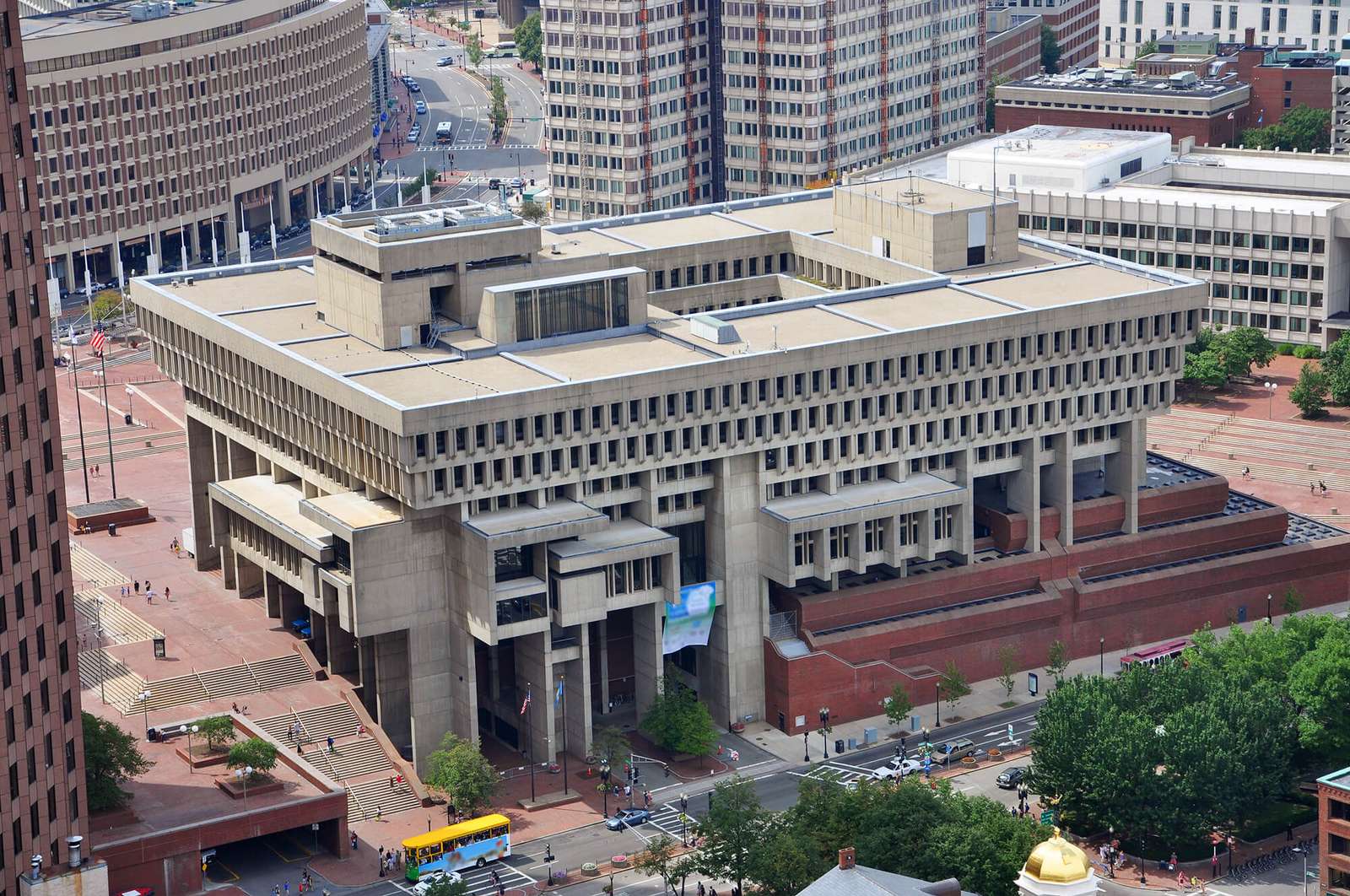Boston City Hall has been recommended by the municipal government for landmark status
Boston City Hall is a building people love to hate. This year, a survey listed it as the “second ugliest building in the United States,” and the fourth ugliest on planet Earth. In 2006, Mayor Thomas Menino said he lamented working there; that year he proposed selling the building to build a new City Hall in South Boston.
Public opinion toward the building however has since changed. Heroic: Concrete Architecture and the New Boston—a 2015 book by Mark Pasnik, Michael Kubo and Chris Grimley—did much to set the record straight about why Boston City Hall should be cherished. Later in 2021, Michelle Wu shared her affection for the Brutalist behemoth on an Instagram live tour, making her the first pro-Boston City Hall mayor in recent memory. In a mayoral debate, Wu said she’d be willing to “fight anyone who says [Boston City Hall’s] not a beautiful building.”
This week, the Wu administration announced that the city government supports landmarking Boston City Hall. The decision would protect the 1968 structure designed by Kallmann and McKinnell from major renovations in its facade and main lobby that critics say would “compromise its integrity.” If the vote is passed to designate Boston City Hall as a landmark, it would be protected under Chapter 772 of the Acts of 1975.
To all the Boston City Hall brutalism haters, today we’re setting the record straight.
I’ll be on Instagram Live today @ 12:15PM with two architecture experts. See for yourself why I love City Hall! https://t.co/66Z8rl1aBA pic.twitter.com/O8ZpACjsdx
— Michelle Wu 吳弭 (@wutrain) August 27, 2021
“The design was intended to foster transparency and accessibility, with the aim of bringing government closer to the people,” city officials said in a press release. “While popular opinion does not always look favorably on the building, Boston City Hall is architecturally significant as a bold example of Brutalist architecture in a period when steel and glass structures were becoming the standard. The massive concrete building presented a significant departure from the traditional brick and brownstone materials associated with Boston’s evolution, and its image has become an iconic part of the city’s cultural identity.”
Voters first proposed landmarking Boston City Hall in 2007, one year after it was threatened by the Menino administration. For next steps, city officials have scheduled a hearing on October 24 where the public can weigh in on the decision. The city has also created an online form for sharing public thought.
Last November, City Hall Plaza came out of a $95 million renovation by Boston-based multidisciplinary design firm Sasaki to revamp its plantings and improve public access, among other upgrades. The project, which took several years to complete, brought 250 new trees, 3,000 feet of seating, and a new playground, which earlier this summer garnered the internet’s attention following a viral video of a police officer going down a slide there.





